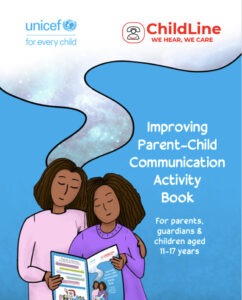Suicide & Suicidial Ideation in Children and Young Adults
Suicide is the act of someone deliberately harming themselves with the intent to end their life whereas suicidal ideation is the thought of wanting to die and/or having the intent to commit suicide, including planning how to do it. The causes of suicide and suicidal ideation among children and young adults in Trinidad and Tobago are not well-known. However, according to the World Health Organization, this country has the third-highest rate of suicides regionally. What life circumstances may lead a child to take their life?! When we think of childhood we often think of fun, freedom, and growth, but the reality is many children feel depressed or anxious and have experiences with social problems way beyond their years. Similarly, suicide does not discriminate as practically anyone can be affected by this serious public health issue. Signs of suicidal ideation are also not always obvious. This can be your friend, your sibling, your classmate, or maybe it’s you! Regardless, you should know that help is available and life challenges rarely last forever. What might seem like a dark period can serve as a crucial life lesson to help shape you into a resilient adult. While this might be true, we cannot underestimate the role of mental health disorders in the act of suicide. Therefore, if you or someone you know is having suicidal thoughts, the following tips might be useful.
Speak to Someone
When you begin to feel overwhelmed or even depressed with the inability to cope with life challenges, reach out. Speak to someone that you can trust someone who would support you by listening and providing effective moral support in assisting you to overcome that trying time. Talking to a friend or family member about your suicidal thoughts may be difficult, but that person can assist in exploring healthy coping strategies.
Establish Healthy Problem-Solving Skills
When you are stressed, most times your mental reaction is to flee or fight. In overcoming suicidal thoughts by consciously initiating your ‘fight response’ you can help to develop your problem-solving skills. In turn, this can help in your capacity to recover quickly from difficulties and personal challenges vis a vis resilience. For example, when your exam period is approaching and you begin to feel overwhelmed, by the large volume of work you need to study to be ready, you can practice redirecting your feelings of frustration and anxiety by actively looking for ways you can better prepare for the exam. Perhaps you can come up with a study timetable or make a list of all the problematic areas where you need to spend the most time studying.
Write it Down
Journaling is a proven method of combatting suicidal ideation. The act of writing down and keeping track of your emotions can be very therapeutic. This way you can better understand what your triggers are—what environmental and social factors contribute to your thoughts about ending your life. Some useful tools in the form of apps are the My ChildLine app which has a lock diary feature as well as a daily mood tracker, and the Calm Harm app which can assist in dealing with overwhelming emotional reactions and periods of intense distress.
Get Professional Help
Asking your parents or guardian to speak to a trained counsellor or therapist should remain an option for you. Speaking with someone who has experience in clinically attending to persons struggling with suicidal ideation is a helpful approach. You can even reach out to ChildLine’s toll-free helpline at 800-4321 or 131 or request a counselling session by visiting childlinett.org. This is a free and confidential service available to you.
Life is full of challenges and feelings of loneliness, sadness, or hopelessness, and experiences with stress, frustration, and anxiety are inescapable. However, no matter how difficult our situations may appear to be, suicide should never be the answer. So, remember to talk to someone, find healthy coping solutions to life challenges, practice journaling, and if it’s all too much for you to handle, seek professional help.








